Divorce
Overview
Going through a divorce can be one of the most trying times in a person’s life. If you are considering a divorce, you and your spouse may not see eye-to-eye on some or all of the issues regarding your marriage. It is first important to note that there are alternatives to divorce, called Alternative Dispute Resolution. Alternative Dispute Resolution is a way to resolve your marital problems without going through the Courts. The two (2) main forms of Alternative Dispute resolution are Arbitration and Mediation.
If you are considering a divorce, it may seem logical for you and your spouse to try and handle the proceedings without hiring an attorney. Before you take that path, it is important to consider all the complexities associated with a divorce. If a mistake gets made, it can require lengthy and expensive legal work to correct, if it is even correctable at all!
Hiring an experienced attorney is key to navigating these difficult waters. Adam Wiseberg is an experienced New Jersey divorce lawyer. Adam Wiseberg can assist you through this difficult process and will work with you to obtain the best result for you and your children. Adam Wiseberg prides himself on always being there for the client. No matter what the issues are, Adam Wiseberg has the knowledge and experience to assist you.
There are many different aspects of your divorce that may need to be negotiated and agreed upon, including:
Usual Grounds for Divorce:
- Adultery
- Abandonment (at least 12 months)
- Extreme Cruelty (physical or mental)
- Separation (at least 18 months)
- Irreconcilable Differences (at least six months) (No fault)
. Spousal Support
In New Jersey, spousal support is called alimony. Alimony in New Jersey is not based on a fixed formula. There are many different factors that will determine whether alimony is appropriate including:
- Actual need and ability to pay
- Length of the marriage
- Age and health of the parties
- Marital Lifestyle
- Responsibilities with children
- Earning capacity
- And more
In New York, spousal support is called maintenance. While the Courts will consider many factors similar to New Jersey, there is a statutory formula as well for calculating maintenance. The New York Courts have developed a calculator that gives you an estimate of your potential maintenance claim.
Alimony/Maintenance is a very complicated issue that will affect your life potentially long after you are divorced. "How much?" and "How long?" are questions that may be going through your mind. In addition, not all former spouses are even eligible to receive alimony or maintenance. The courts will carefully examine the length of marriage, the standard of living and the relative income of each person. It is therefore important that you speak with an attorney, such as Adam Wiseberg. Hiring the correct, experienced divorce attorney can help you persuade the court regarding alimony or maintenance. Adam Wiseberg is knowledgeable about the extensive case law and statutory requirements surrounding alimony in New Jersey and maintenance in New York. Contact Adam Wiseberg, Esq. for your FREE Consultation.
. Equitable Distribution of Assets and Debts
Both New Jersey and New York are Equitable Distribution states. This means that the Court will divide assets and debts equitably or fairly. This does not necessarily mean that both parties will get a 50-50 split of the assets and debts. Instead, the Court will look at a number of different factors to determine a fair outcome.
Equitable Distribution is a very important part of the divorce process. Once the divorce is finalized, it is very difficult, if not impossible, to change the terms of the equitable distribution. The types of assets that are subject to equitable distribution include: real property, bank accounts, businesses, vehicles, pensions, retirement accounts, personal property, and more. The types of debts that are subject to equitable distribution include: mortgages, long term debt (including loans), credit card debt, and more.
When looking at assets and debts, the Courts will look more specifically at marital assets and debts. This means that there could be property that is exempt from distribution. Usually, the types of assets that are exempt are pre-marital assets and gifts solely to one party that have not since been "co-mingled." However, this does not mean that all assets kept in only one person’s name are automatically exempt.
You should schedule your FREE Consultation with Adam Wiseberg, Esq. to determine your rights and obligations concerning property division through equitable distribution.
Child Custody / Visitation
After going through a divorce, it is highly likely that you and your former spouse will no longer live with each other. There are many different custodial arrangements for children. It is important to recognize that there are two (2) types of child custody: legal custody and physical custody. Legal custody concerns “big picture” decision making, including major medical decisions and educational decisions. Physical custody is where the child lives and minor, “every day” decision making. The courts have bunched them into several categories: sole legal custody, joint legal custody, sole physical custody, and shared physical custody.
It is always best for the parties to set aside any anger and come to an agreement on key decisions regarding the children. Mediation is one of the best ways for parents to sit down in a neutral environment with professionals who's goal it is to create workable arrangements. Adam Wiseberg will meet with you to develop the correct strategy that will ultimately result in a resolution.
If the parties cannot come to a resolution on issues regarding the child, then the Court's will have to make a decision on the issues. The Courts in both New Jersey and New York look to what is in the best interests of the child to determine what the most appropriate custodial arrangement is. Adam Wiseberg will work with you to develop effective strategy to make you feel confident that the children's best interests are protected and your rights are secure.
Once a custodial arrangement is determined, a parenting time or visitation schedule is needed. There are an infinite amount of ways that parenting time can be established and modified. Again, the Court’s standard is what is in the best interests of the child, but if an agreement can be reached, it can usually be as flexible as the parties wish it to be.
Child Custody and Visitation are usually some of the most highly contested issues in a divorce. Adam Wiseberg has the expertise and resources to give each client personal attention and to handle the case to the best result possible.Contact Adam Wiseberg, Esq. today for your FREE Consultation.
Child Support
Once a Custody and Visitation schedule are agreed upon or decided by a Judge, the last piece of the puzzle is Child Support. In both New Jersey and New York, child support are determined through a formula called the Child Support Guidelines. While both States utilize different formulas, the objective of both States’ formulas are to make sure that the child is supported financially by both parties.
Adam Wiseberg is knowledgeable about the Child Support Guidelines. Adam Wiseberg can sit down with you to explain each and every line of the Guidelines to give you a better understanding of how Child Support is calculated.
Establishing and/or modifying Child Support through a divorce is a complicated endeavor. Adam Wiseberg, Esq. is here to vigorously represent you when you need to calculate and establish child support, modify child support or end child support through emancipation. Contact Adam Wiseberg, Esq. today for your FREE Consultation.

Call us now for a FREE consultation
We are available 24/7 to assist you
